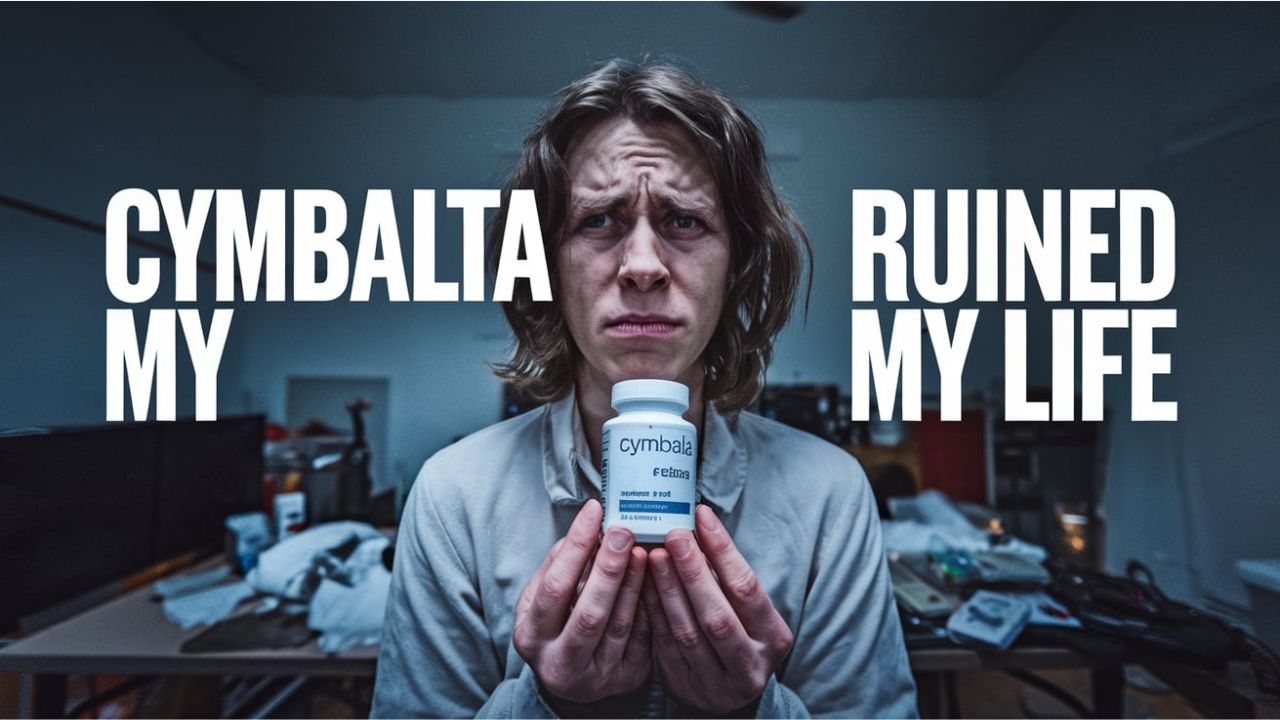In recent years, Cymbalta (duloxetine), a popular antidepressant, has sparked widespread debate due to its significant side effects and withdrawal challenges. Many people, initially prescribed Cymbalta for depression, anxiety, or chronic pain, have reported life-altering experiences—both positive and negative. While some find it highly effective, others feel that “Cymbalta ruined my life,” recounting struggles with severe side effects, difficult withdrawals, and lasting emotional and physical impacts.
If you’re navigating the effects of Cymbalta or researching its potential risks, this guide offers a comprehensive look at how the medication impacts mental health and quality of life.
What is Cymbalta?
Cymbalta, or duloxetine, belongs to a class of medications known as serotonin-norepinephrine reuptake inhibitors (SNRIs). It’s commonly prescribed to manage:
- Major depressive disorder (MDD)
- Generalized anxiety disorder (GAD)
- Chronic pain conditions, like fibromyalgia and diabetic neuropathy
By influencing serotonin and norepinephrine levels, Cymbalta can stabilize mood and reduce pain perception. However, despite its benefits for some patients, Cymbalta’s effects and side effects can vary significantly, causing issues that have led to severe dissatisfaction among certain users.
The Phrase “Cymbalta Ruined My Life”: Why Are People Struggling?
While Cymbalta may work well for many, some users experience adverse effects that lead them to feel that the medication has disrupted their lives. Common concerns include:
1. Severe and Unexpected Side Effects
Some individuals report experiencing side effects that make daily life difficult, including:
- Nausea and Vomiting
- Dizziness and Fatigue
- Weight Changes
- Insomnia and Vivid Dreams
- Mood Swings and Increased Anxiety
These side effects can range from mild to debilitating, with many users feeling trapped between managing their symptoms and dealing with Cymbalta’s side effects.
2. Long-term Dependency Concerns
For certain users, taking Cymbalta for extended periods has led to dependency, where they feel unable to function normally without the medication. Even those who want to stop may struggle due to severe withdrawal symptoms, often making it difficult to discontinue safely without medical support.
3. Emotional and Cognitive Changes
Users frequently report emotional numbness or a “flattening” effect, where they feel less connected to their emotions. Others experience brain fog, impacting concentration and decision-making. This cognitive impact has made it challenging for some to engage fully in work, studies, or social activities, adding to the sense that “Cymbalta ruined my life.”
Navigating Cymbalta Withdrawal: Why Quitting Is So Challenging
Cymbalta withdrawal can be one of the most challenging aspects for those attempting to stop the medication. Withdrawal symptoms—often referred to as “Cymbalta Discontinuation Syndrome”—can be severe and may include:
- Brain zaps (electric shock sensations in the brain)
- Headaches and Migraines
- Dizziness and Vertigo
- Extreme Fatigue
- Mood Swings and Anxiety
- Irritability and Emotional Distress
These symptoms are often intense enough to hinder daily functioning, leading some users to feel that they’re trapped in a cycle of dependence. It’s also important to note that withdrawal experiences vary widely, and factors such as dosage, duration of use, and individual sensitivity can impact withdrawal severity.
Stories from Cymbalta Users: Personal Accounts of Struggle
The phrase “Cymbalta ruined my life” is rooted in the real-life experiences of many who have found their health or quality of life compromised. Personal stories frequently highlight:
- Loss of Independence: Many individuals describe an inability to complete everyday tasks due to constant fatigue or mood swings.
- Strained Relationships: Some users experience emotional detachment, which can harm personal relationships, leading to feelings of isolation.
- Job Loss or Academic Struggles: Symptoms like brain fog, irritability, and concentration problems have caused individuals to underperform or even leave jobs or studies.
For many, the journey with Cymbalta has been filled with ups and downs, with some users feeling they’ve lost years of their lives to the side effects.
Managing Cymbalta Side Effects: Tips and Strategies
If you’re struggling with Cymbalta’s side effects, there are strategies that may help mitigate them. These methods won’t eliminate the side effects but can improve daily life and reduce discomfort:
1. Lifestyle Adjustments
Making small lifestyle changes can sometimes reduce side effects. For example, hydration and a balanced diet can support general health and minimize certain symptoms. Regular exercise has also been shown to improve mood, energy levels, and sleep quality, which may ease some of Cymbalta’s fatigue or mood-related side effects.
2. Gradual Tapering for Withdrawal
If you’ve decided to stop taking Cymbalta, it’s essential to work with a healthcare professional to develop a gradual tapering plan. Tapering down slowly can minimize withdrawal symptoms and help the body adjust to reduced doses. Abruptly stopping the medication can intensify symptoms and lead to relapse, so professional guidance is crucial.
3. Emotional and Mental Health Support
Seeking therapy or joining support groups can be incredibly beneficial. Therapy can help individuals process emotional challenges, while support groups provide a safe space to share experiences with others facing similar struggles. Online communities and forums dedicated to Cymbalta withdrawal can offer advice, understanding, and practical tips for managing the transition.
Alternatives to Cymbalta for Depression and Anxiety
For those whose experience with Cymbalta has been overwhelmingly negative, exploring alternative treatments might be a consideration. Several options have shown promise for managing depression and anxiety without the same side effects:
- Other Antidepressants: SSRIs like Prozac or Zoloft are sometimes better tolerated and have fewer withdrawal symptoms.
- Natural Remedies: Supplements like St. John’s Wort or Omega-3 fatty acids have shown mild benefits for some individuals. However, consult with a healthcare provider before combining these with any existing medications.
- Lifestyle-Based Therapies: Activities like mindfulness meditation, yoga, and exercise have demonstrated positive effects on mental health and are free from side effects.
FAQs
Is Cymbalta safe for long-term use?
For some people, Cymbalta can be a safe and effective long-term treatment. However, others experience diminishing benefits or increased side effects over time, making it essential to regularly discuss treatment with a healthcare provider.
Can Cymbalta withdrawal be dangerous?
While not typically dangerous, Cymbalta withdrawal can be extremely uncomfortable and may increase symptoms of depression or anxiety. It’s crucial to taper off the medication gradually with medical guidance.
Why does Cymbalta cause emotional numbness?
Cymbalta works by altering neurotransmitter levels, which can sometimes lead to emotional blunting or detachment, affecting how individuals experience emotions.
How can I know if Cymbalta is right for me?
It’s essential to have an open conversation with a healthcare provider about both potential benefits and risks. Cymbalta’s effects can vary widely, and your doctor can help determine if it aligns with your health needs.
Are there safer alternatives to Cymbalta?
Yes, SSRIs and natural supplements may be alternatives, but it’s crucial to consult a healthcare provider to understand the best options for your specific health needs.
Does everyone experience Cymbalta withdrawal?
Not everyone will experience withdrawal symptoms, but a significant number of users do report varying degrees of withdrawal discomfort when discontinuing the medication.
Conclusion
For some, Cymbalta has proven to be a helpful tool in managing chronic conditions, while for others, it has led to profound challenges. The reality is that, like any medication, Cymbalta affects individuals differently. As a result, anyone considering Cymbalta—or currently experiencing side effects or withdrawal symptoms—should consult a trusted healthcare provider to weigh the benefits and risks carefully. If you’re among those who feel that Cymbalta has negatively impacted your life, know that support, resources, and alternative treatments are available to help you reclaim control and find a better path forward.











